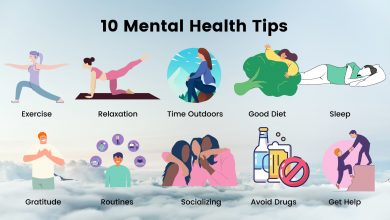Mental Health Issues in Modern Society – Causes, Suicides, and Effective Solutions
Explore the causes of mental health issues and rising suicide rates in today’s society. Learn practical solutions to manage mental health, prevent suicides, and promote well-being.

Mental Health Issues in Modern Society – Causes, Suicides, and Solutions
Mental health is becoming a major concern in today’s fast-paced and demanding world. Factors like work pressure, financial burdens, relationship challenges, and social expectations are leading to increased stress and emotional instability. With mental health challenges on the rise, understanding the causes and solutions becomes critical in preventing severe consequences like suicides.
Causes of Mental Health Issues
- Stress and Pressure:
High-pressure environments in both professional and personal lives cause chronic stress, leading to anxiety and burnout. - Social Isolation and Loneliness:
Lack of meaningful connections, exacerbated by increased use of social media, is contributing to loneliness. - Economic Challenges:
Financial instability, unemployment, and debt are primary contributors to mental health deterioration. - Relationship Issues:
Conflicts in family or romantic relationships can result in depression and emotional distress. - Substance Abuse:
Drug and alcohol dependency can exacerbate or trigger mental health conditions such as anxiety and depression. - Genetics and Family History:
Individuals with a family history of mental health disorders may be at higher risk of experiencing similar issues.
Why Suicides are Increasing
The rise in suicides across the globe highlights the severity of unaddressed mental health issues. Key reasons include:
- Unresolved Mental Illness: Conditions like depression and bipolar disorder often go unnoticed or untreated.
- Stigma Around Seeking Help: Many individuals feel ashamed to seek counseling or therapy due to societal stigma.
- Sudden Life Changes: Events like divorce, job loss, or the death of a loved one can trigger suicidal thoughts.
- Social Media Pressure: Unrealistic standards and comparison on social media platforms contribute to feelings of inadequacy.
- Lack of Support Systems: Individuals without strong support networks are more vulnerable to taking drastic measures.
Solutions and Preventive Measures
- Promoting Awareness and Reducing Stigma:
Campaigns to educate people about mental health and encourage open conversations can make it easier for individuals to seek help. - Therapy and Counseling:
Access to professional mental health services like therapy and counseling can help individuals manage emotional stress effectively. - Creating Strong Support Networks:
Family, friends, and community groups can provide emotional support during difficult times. - Encouraging Physical Activity and Mindfulness:
Exercise, yoga, and mindfulness practices are effective in reducing stress and promoting mental well-being. - Hotlines and Crisis Intervention:
24/7 helplines and crisis support centers can intervene during moments of suicidal intent and provide immediate help. - Workplace Mental Health Programs:
Employers can implement mental health programs to reduce stress and improve the well-being of employees. - Policy Changes:
Governments can work to make mental health services accessible and affordable, ensuring timely intervention.
Conclusion
Addressing mental health issues requires collective efforts from individuals, families, communities, and policymakers. Awareness, acceptance, and timely intervention can prevent tragic outcomes like suicides. Promoting a culture of empathy and understanding ensures that no one feels alone in their struggle. By prioritizing mental health, society can create a healthier and happier environment for everyone.





